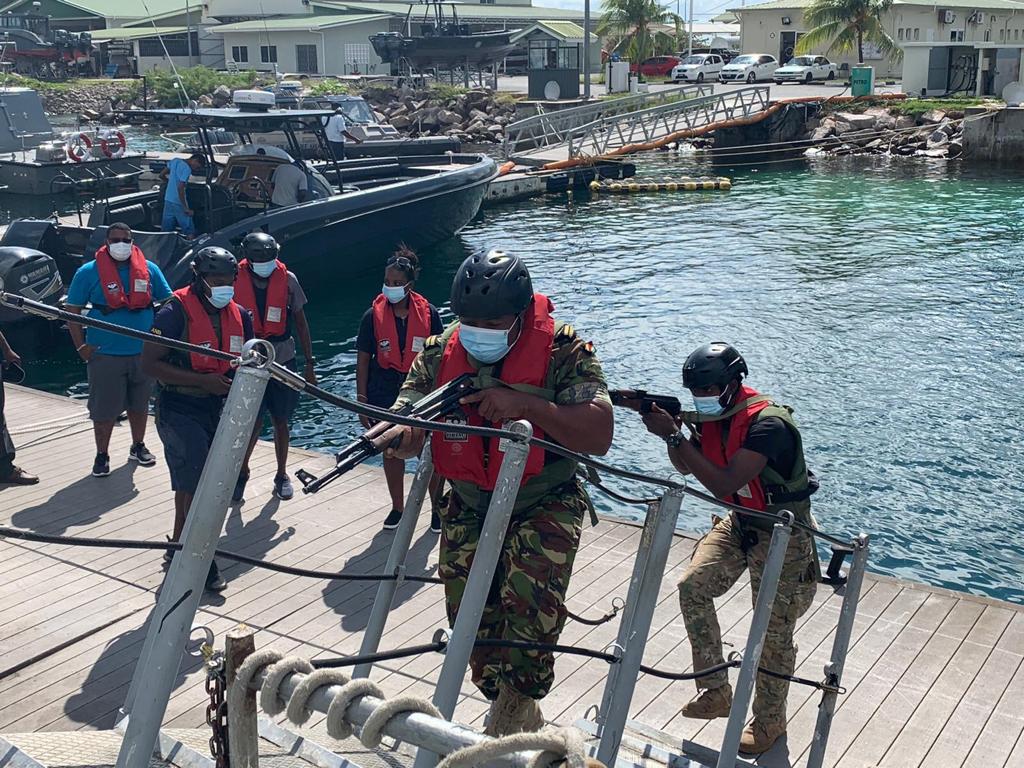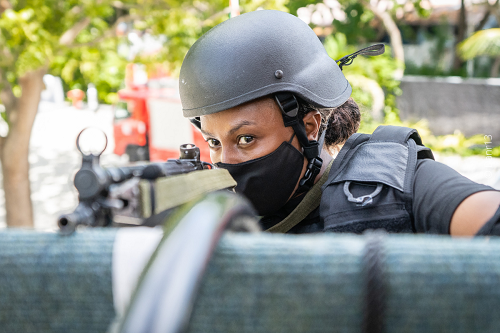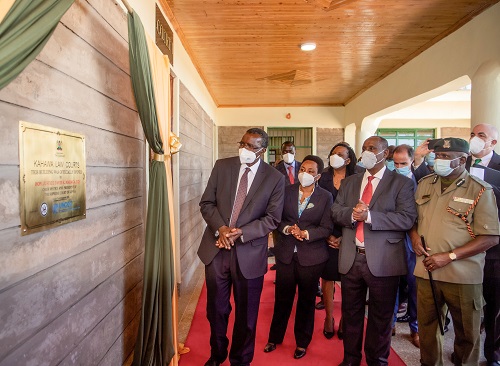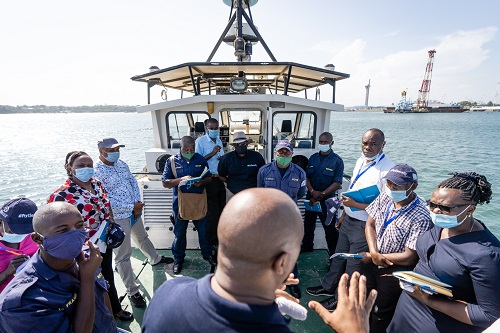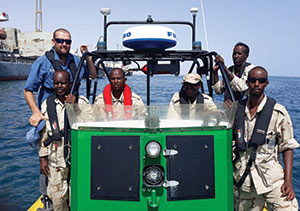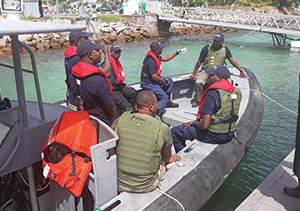Global Maritime Crime Programme
You are here : Home / What We Do / GMCP
The Global Maritime Crime Programme was established in 2010 in response to United Nations Security Council resolutions calling for a concerted international response to address piracy off the Horn of Africa.
The programme, then known as the Counter Piracy Programme, played a central role in the establishment of a regional 'piracy prosecution model'.
This involved providing comprehensive criminal justice support to states in the Indian Ocean region, which received suspected pirates for prosecution. Since then the Counter Piracy Programme has expanded both thematically and geographically into the Global Maritime Crime Programme covering a much wider spectrum of maritime crime within six ocean spaces globally.
The Gulf of Aden, the Red Sea and the Indian Ocean West teams of the Global Maritime Crime Programme are based in the Regional Office for Eastern Africa in Nairobi.
We have extensive experience and knowledge in supporting states in the region in the fight against maritime crime and have a programming presence in the following countries in the East African Region: Comoros, Djibouti, Kenya, Madagascar, Mauritius, Seychelles, Somalia, and Tanzania.
The programme is committed to support Member States, through its mandate, to develop cooperation both at a regional and international level and build law enforcement capacity among member states to counter serious organized crime within the maritime domain. In terms of our lines of activity, we traditionally offer support to countries to tackle transnational maritime crime throughout the entire criminal justice chain. This involves technical, material, and infrastructural support to law enforcement, prosecution, and detention. All interventions have a strong regional cooperation emphasis and under the mandate of its Indian Ocean Forum on Maritime Crime (IOFMC), it provides a strong coordination and delivery mechanism, covering thematic areas for intervention focusing primarily, but not limited to, Maritime Drug Trafficking, Fisheries Crime and Smuggling of Somali Charcoal. The participation of 22 states in IOFMC activity is a clear indication that the Forum fills an important gap in the regional response to these types of crimes at sea.
Our Work in Eastern Africa
Our activities include the following:
Law Enforcement: The programme builds maritime law enforcement capacity and capability through the delivery of training courses and full-time mentorship, which are customized according to the specifics needs of the counterparts. It also runs the Southern Route Partnership (SRP), which provides a coordination platform for national drug enforcement agencies and international partners to identify priority areas and coordinate support that enhances common objectives. The programme also delivers support in information sharing through the strengthening of maritime domain awareness (MDA) capabilities, including the development of terrestrial technology to augment MDA picture as well as dark targeting and behavioural analysis capability.
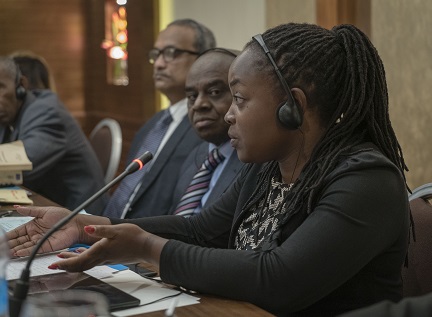 Prosecution: The Prosecutors’ Network, which is a cross-cutting pillar within the IOFMC provides a setting for senior prosecutors from across the Indian Ocean region to meet, share knowledge, problem-solve, and discuss cooperative strategies for prosecuting maritime crimes including piracy, heroin trafficking, trafficking in persons, people smuggling, and wildlife trafficking. The forum includes relevant training on topics such as mutual legal assistance, and the development of simulated trials to provide a coherent and coordinated approach to prosecuting and adjudicating regional maritime drug trafficking. The forum also supports member states with reviews of their legal frameworks with a view to ratify and domesticate relevant international conventions into domestic law and mentorship programmes.
Prosecution: The Prosecutors’ Network, which is a cross-cutting pillar within the IOFMC provides a setting for senior prosecutors from across the Indian Ocean region to meet, share knowledge, problem-solve, and discuss cooperative strategies for prosecuting maritime crimes including piracy, heroin trafficking, trafficking in persons, people smuggling, and wildlife trafficking. The forum includes relevant training on topics such as mutual legal assistance, and the development of simulated trials to provide a coherent and coordinated approach to prosecuting and adjudicating regional maritime drug trafficking. The forum also supports member states with reviews of their legal frameworks with a view to ratify and domesticate relevant international conventions into domestic law and mentorship programmes.
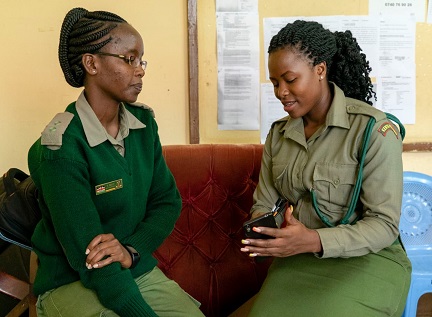 Detention: The programme has been delivering a Prevention of Violent Extremism (PVE) programme in Kenya and Somalia, and the main thematic areas of engagement are focused on training and mentoring of Prison Staff dealing with Violent Extremist Prisoners (VEPs), delivery of physical, procedural and dynamic security, enhancing prisoner record management systems, rehabilitation and reintegration activities, including support to vocational training, education and moderate religious (counter-narrative) teaching programmes, as well as the implementation of a robust risk assessment tool aimed at assessing risks of re-offending, recruiting and radicalizing amongst the prisoners. Prior to this, the programme was actively involved in supporting prison management services that held convicted pirates, ensuring the environment in which they were detained was human rights compliant enabling safe and secure detention.
Detention: The programme has been delivering a Prevention of Violent Extremism (PVE) programme in Kenya and Somalia, and the main thematic areas of engagement are focused on training and mentoring of Prison Staff dealing with Violent Extremist Prisoners (VEPs), delivery of physical, procedural and dynamic security, enhancing prisoner record management systems, rehabilitation and reintegration activities, including support to vocational training, education and moderate religious (counter-narrative) teaching programmes, as well as the implementation of a robust risk assessment tool aimed at assessing risks of re-offending, recruiting and radicalizing amongst the prisoners. Prior to this, the programme was actively involved in supporting prison management services that held convicted pirates, ensuring the environment in which they were detained was human rights compliant enabling safe and secure detention.
